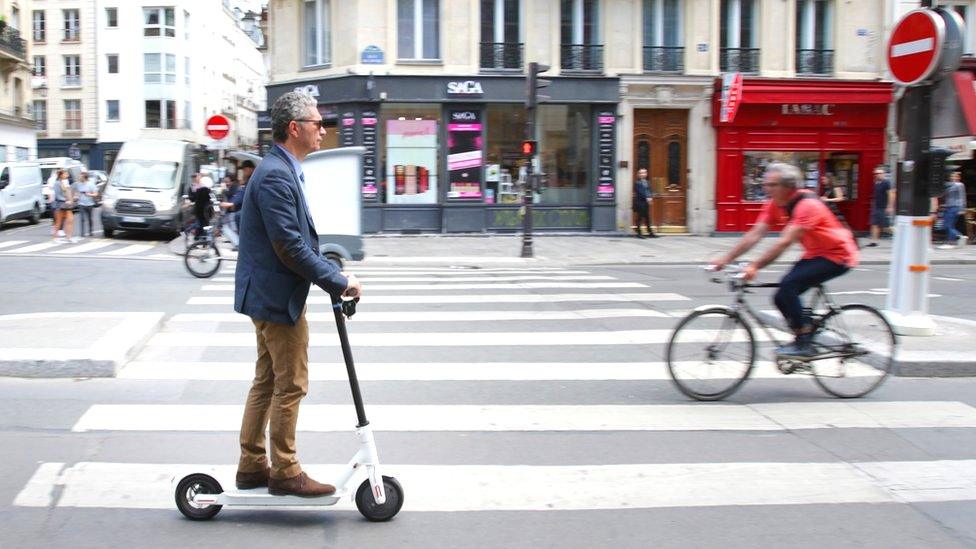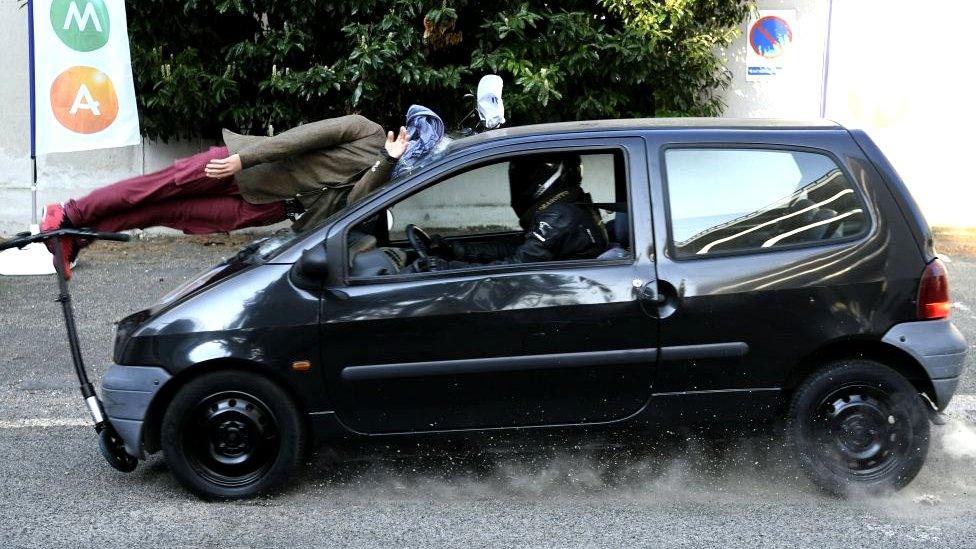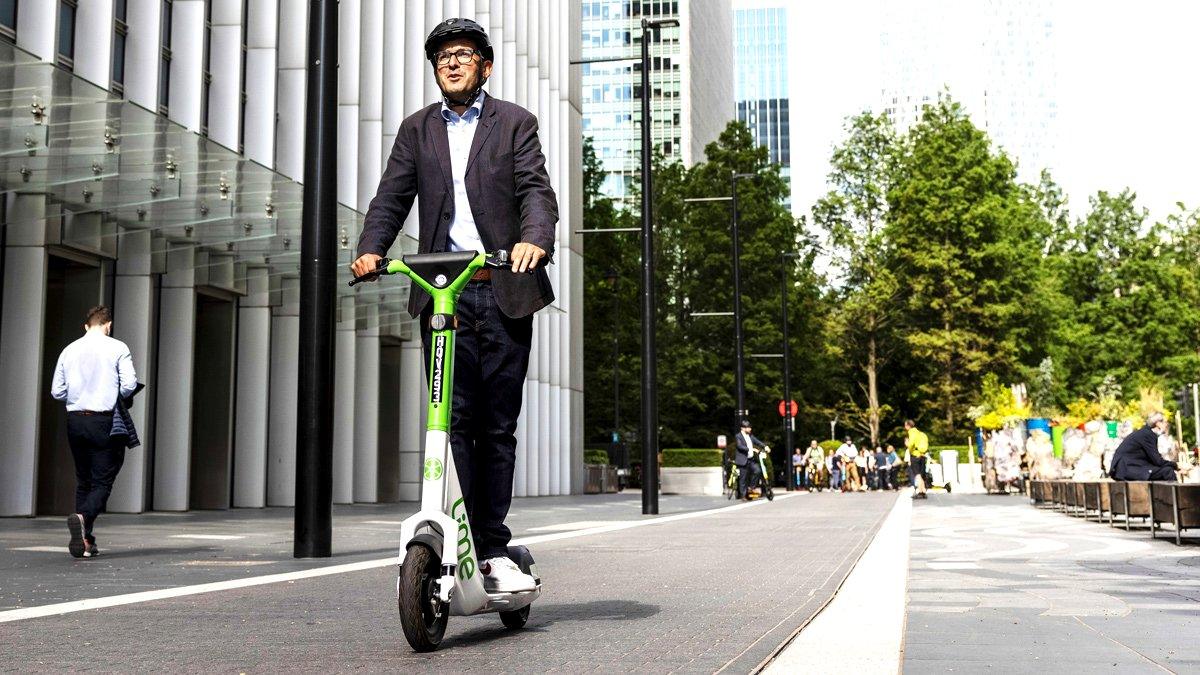Electric scooters: Europe battles with regulations as vehicles take off
- Published

There are more than 15,000 electric scooters available for hire on the streets of Paris
As electric scooters become increasingly popular across Europe, cities are struggling to regulate their use following a spate of accidents.
The two-wheeled vehicles, which can travel at speeds in excess of 50km/h (30mph), have been involved in hundreds of incidents, including several deaths.
Germany is now looking to enforce "clear" and "binding" laws, its transport authorities say.
Regulators must decide if scooters are for pavements, cycle paths or roads.
As the vehicles have small, electric motors to power them, it is proving tricky to establish the safest spaces for both users and bystanders.
The scooters, which are now available in more than 100 cities across the world, have been flooding streets since the introduction in recent years of sharing schemes similar to the cycle hire projects.
There are, for example, more than 15,000 scooters available for hire on the streets of the French capital, Paris. In the German city of Cologne, authorities expect as many as 40,000 users, external by the end of the year, Deutsche Welle reports.
The vehicles are also growing in popularity due to their low environmental impact compared with other modes of transport.
How dangerous are they?
An explosion in the popularity of motorised scooters appears to have caught governments off guard, and companies that manufacture and supply scooters are not currently required to provide certain safety features - some scooters only have one brake and can be difficult to stop when travelling at speed.
Since January 2018, at least 11 deaths have been linked to the scooters in cities including Paris, Brussels, Barcelona, Stockholm and London.
Hundreds of people have been injured in road traffic incidents involving the vehicles:
In France, the first electric scooter fatality was recorded in June, when a young man was struck by a lorry in Paris

French authorities have been carrying out safety tests involving mannequins
Last August, a 92-year-old woman was killed when she was hit by an electric scooter, external user while walking in the Spanish city of Barcelona, the Euronews website reported
A 27-year-old man died in a crash in Sweden in May while riding his scooter in a bicycle lane
Last month, popular TV presenter and YouTuber Emily Hartridge was killed after she was struck by a lorry while riding an electric scooter in London
What are the current laws in European cities?
The use of electric scooters in public is permitted in many European countries, such as Germany, France, Austria and Switzerland.
But laws in the UK and Ireland ban them from pavements and roads - the only place they can be ridden is on private land, with the permission of the landowner. Riders caught using them in public in the UK face a £300 fixed-penalty notice and six points on their driving licence.
Sweden has banned the use of any motorised scooters, external capable of speeds beyond 20km/h from its cities' bicycle lanes.
In Paris, fines of €135 ($151; £116) were recently introduced for riding electric scooters on pavements, and a €35 penalty is issued to users parking vehicles in doorways or blocking pavements.
France is also expected to give cities more power to regulate scooter use later this year, although it is not clear what measures will be implemented.
The electric scooter scheme taking over Paris
A speed limit for the vehicles has been introduced in Belgium, where they can be ridden by anyone aged 18 or over under the same laws as bicycles, although the country recently raised the speed limit from 18km/h to 25km/h.
In the Danish capital, Copenhagen, new rules are being considered to limit the number of scooters that can be parked in specified areas of the city, The Local reported.
- Published22 March 2022
